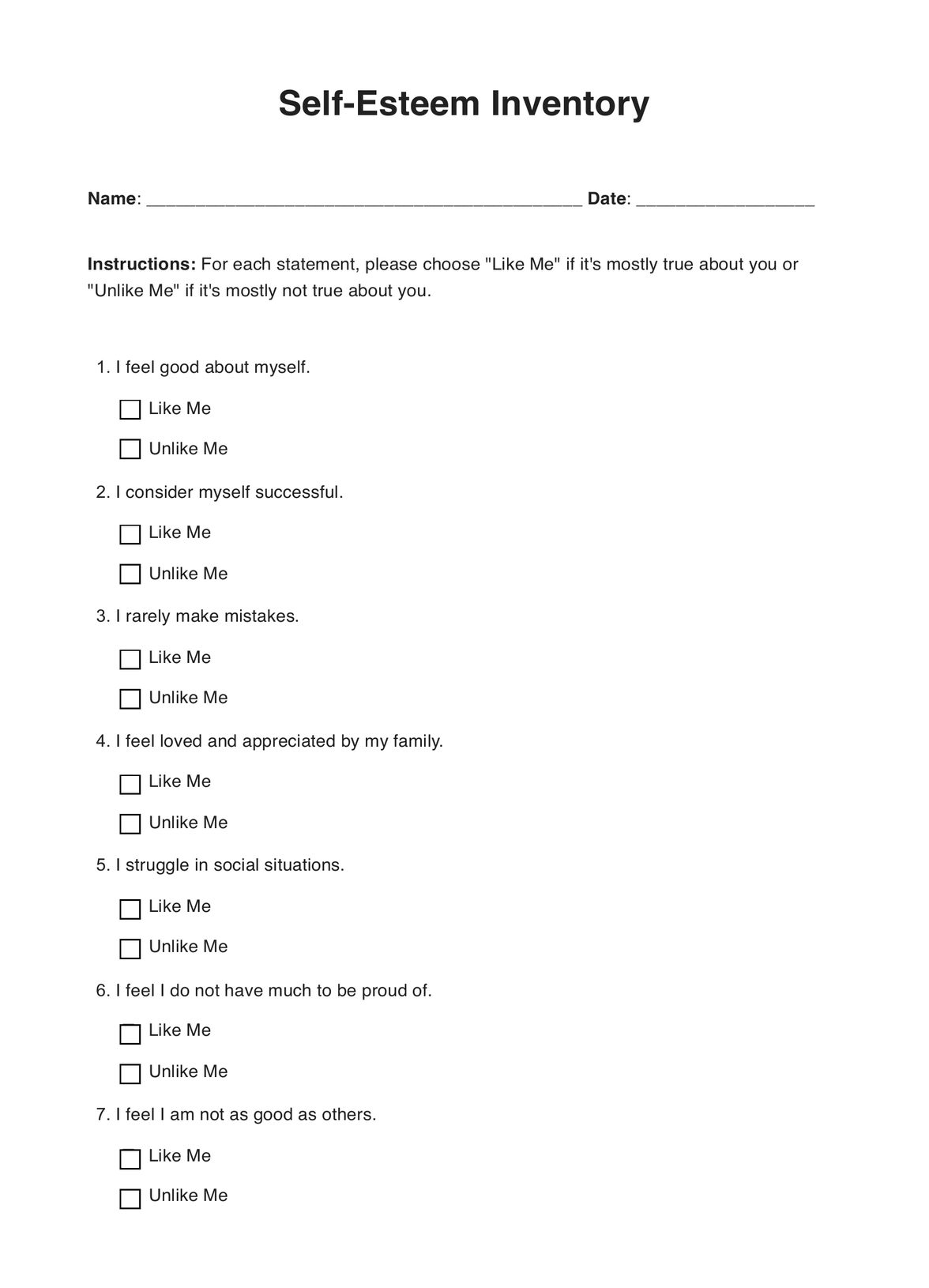Coopersmith's self-esteem theory posits that self-esteem is a set of attitudes and beliefs that a person brings with them when facing the world. It includes beliefs about whether they can expect success or failure, how much effort they should put forth, whether failure will "hurt," and whether they will become more capable due to different experiences.

Coopersmith Self-Esteem Inventory (CSEI)
Access the Coopersmith Self-Esteem Inventory, a robust tool for measuring self-esteem that can be used when working with clients.
Coopersmith Self-Esteem Inventory (CSEI) Template
Commonly asked questions
The Coopersmith Self-Esteem Inventory (CSEI) is designed for use with adults aged 16 and older and children aged 8-15. The adult form contains 58 items, while the school form for children has 58 items. The adult form has subscales for general self, social self-peers, home-parents, school-academic, and total self.
Various studies have extensively validated the Coopersmith Self-Esteem Inventory (CSEI). Construct validity has been demonstrated through hierarchical organization of self-concept, regression analysis, and sensitivity to change. Additionally, the CSEI has shown internal consistency and discriminant validity, making it a reliable and valid measure of self-esteem.
EHR and practice management software
Get started for free
*No credit card required
Free
$0/usd
Unlimited clients
Telehealth
1GB of storage
Client portal text
Automated billing and online payments











